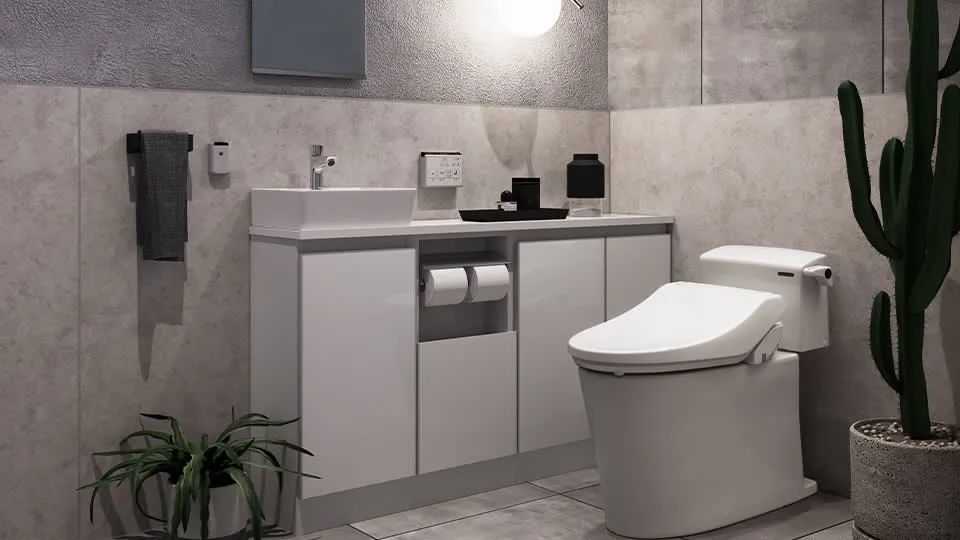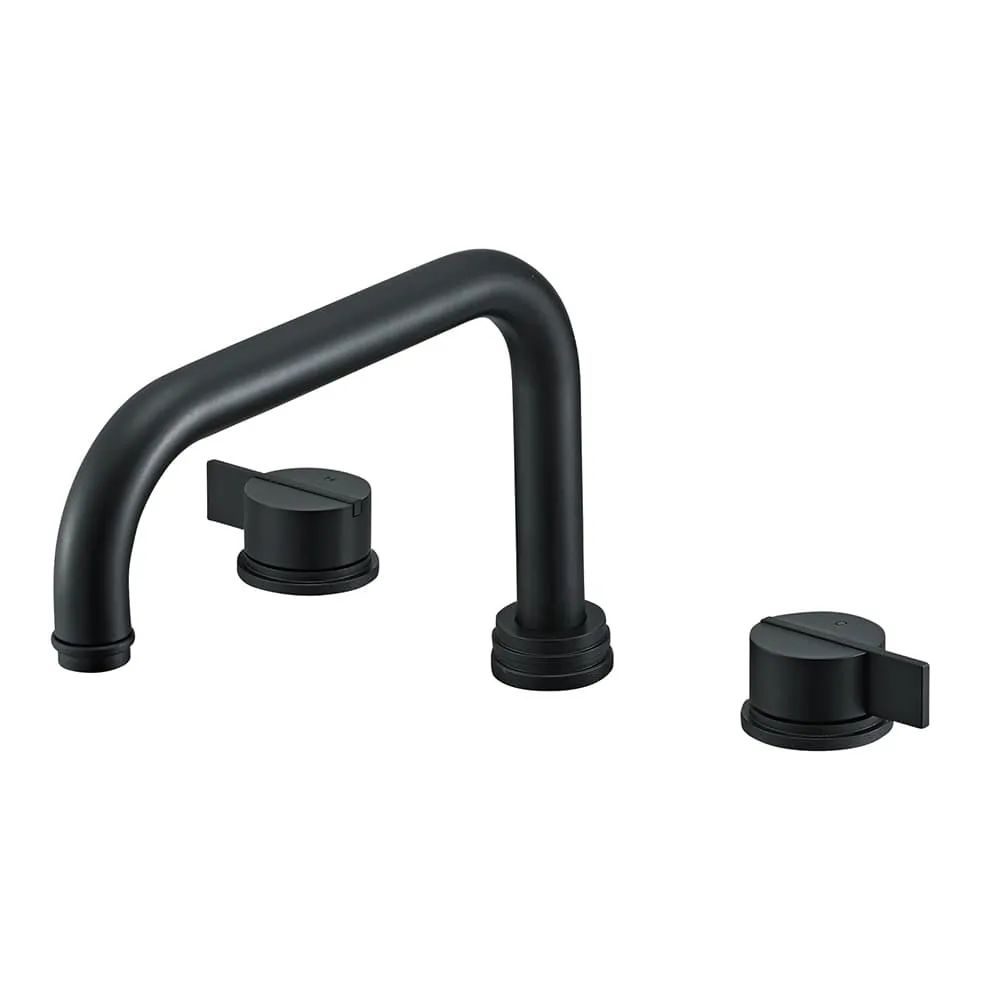Original Kitchen And Bathroom Jun Kitchen And Bathroom Headlines
According to the financial reports previously released by TOTO and Lixil, the first fiscal quarter (April-June 2022) sales of the two bathroom giants have increased. ʻI honau lotolotonga, TOTO’s single quarter sales reached 153.5 piliona ʻa Siapani (about 7.782 piliona ʻIuani), and Lixil even reached 360.3 piliona ʻa Siapani (about 18.303 piliona ʻIuani), ko ha tupulaki ʻo e 5% mo e 4% respectively. However, the earnings performance of the two giants differed significantly.
TOTO net profit increased by 17%, while Lixil decreased by 65.9%. The latter said it was mainly caused by a decrease in profitability. It is reported that its April-June business profit margin decreased to 1.9% from 6.7% in the same period last year.
In addition to the two giants, Japan also has Rinnai, Takara Standard, KVK, Cleanup, SANEI and other bathroom-related companies. Although these companies have sales growth of varying degrees from April to June, they are also facing the same dilemma of reduced net profit or slower growth. It has the largest net profit drop of more than 80%. Some companies said they will increase prices in the near future to offset the continued high prices of raw materials and energy costs.
Rinnai
Sales from April to June were 4.675 piliona ʻIuani, ko ha tupulaki ʻo e 12.45%
Shanghai branch sales were about 588 miliona ʻIuani
Although Rinnai’s main product is water heater, it also produces bathroom products, including bathtubs, bathroom TVs, bath bombs, mo e alā meʻa pe. According to the first fiscal quarter report, Rinnai achieved sales of 95.0 piliona ʻa Siapani (about 4.675 piliona ʻIuani) from April to June, ko ha tupulaki ʻo e 12.45% year on year. Kupenga paʻanga hu mai attributable ki he tokotaha maʻu ʻinasi ʻo e kautaha ʻa e matuʻa naʻe 7.01 piliona ʻa Siapani (about 345 miliona ʻIuani), ko ha tupulaki ʻo e 13.3% taʻu. Both sales and net income in the first fiscal quarter set new records in Rinnai’s history.

Rinnai bathtub products
In the financial report, Rinnai separately listed the operation of each major branch worldwide. It showed that Rinnai Shanghai’s sales and operating profit from April to June were 11.94 piliona ʻa Siapani (about RMB 588 miliona) mo e 1.78 piliona ʻa Siapani (about RMB 88 miliona) respectively, hake 6.2% mo e 3.6% taʻu. However, in terms of local currency, i.e., RMB, they decreased by 6.0% mo e 8.4%, respectively. It is reported that Shanghai Rinnai’s main products are water heaters, gas furnaces and hoods. Its scale of operation is larger than that of the U.S. branch and the Australian branch.
Takara Standard
Sales from April to June increased by 9.0% ki he $2.675 piliona
Product selling prices have been increased in the reporting period
Takara Standard reported sales of 54.354 piliona ʻa Siapani (2.675 piliona ʻIuani) for the April-June quarter, hake 9.0% from the same period last year, according to the company’s first-quarter report released on August 9. Sales of the three businesses were 32,666 Ieni ʻe miliona, 12,913 million yen and 5,995 Ieni ʻe miliona, hake 10.9%, 6.6% mo e 10.7%, respectively. During the same period, Takara Standard achieved net income attributable to shareholders of the parent company of 2,289 Ieni ʻe miliona, a decrease of 15.7% taʻu ki he taʻu.

Takara Standard Smart Toilet Products
Regarding the current market situation, Takara Standard said that from April to June, although the Japanese economy returned to normal and personal consumption showed the first signs of recovery, there is still uncertainty about the future development in view of high raw material and energy prices and the rebound of the epidemic, mo e alā meʻa pe. Takara Standard revealed that the company adopted measures to improve the selling price of its products in the first fiscal quarter, curb selling expenses, and Takara Standard revealed that the company improved its earnings in the first fiscal quarter by raising product prices, curbing selling expenses and improving production efficiency.
KVK
Sales from April to June increased by 2.9% ki he $348 miliona
Product prices will be raised again in October
In April-June, KVK achieved sales of 7,070 Ieni ʻe miliona (about RMB 348 miliona), ko ha tupulaki ʻo e 2.9% taʻu. KVK said that although the company carried out a round of price increase in April this year to cope with the high cost of raw materials and energy, net profit attributable to shareholders of the parent company was 258 Ieni ʻe miliona, a decrease of 63.4%. However, net profit was still missing growth due to the impact of the yen exchange rate. For this reason, the company expects to increase the selling price of some products again in October this year.

KVK faucet products
According to the financial report, KVK launched a series of new products from April to June, including faucet products that can be matched with small-sized bathroom cabinets. ʻI he taimi tatau, the financial report revealed that KVK’s new factory will be completed and put into production within this fiscal year.
Cleanup
Sales from April to June were NT$1.437 billion, ko ha tupulaki ʻo e 8.6%
Bathroom business accounted for only 13.4%
According to Cleanup’s first-quarter report, the company’s sales from April to June were 29.206 piliona ʻa Siapani (about RMB 1.437 piliona), ko ha tupulaki ʻo e 8.6% taʻu. Although sales increased year-on-year, they were affected by higher raw material and energy prices. Operating profit, ordinary profit and net profit attributable to shareholders of the parent company decreased by 42.5%, 34.5% mo e 35.1% respectively in the same period, with net profit of only 488 Ieni ʻe miliona.

Cleanup bathroom cabinet products
Cleanup has a kitchen division and a bathtub/vanity division, with sales in the kitchen division increasing 10.3% from a year earlier to 23.227 piliona ʻa Siapani, tauhitohi maʻá e 79.5% of total revenue. Cleanup’s products also include complete bathrooms, but no specific sales figures have been released.
SANEI
Sales from April to June were 320 Ieni ʻe miliona, hake 15.0%
Carbon Neutral Working Group established during the reporting period
According to SANEI’s (formerly Sanei Water Bolt) first fiscal quarter report, the company achieved sales of 6.423 piliona ʻa Siapani (approximately RMB 320 miliona) from April to June, ko ha tupulaki ʻo e 15.0% taʻu. Despite the increase in revenue, operating profit and net profit for the same period decreased significantly by 72.4% mo e 83.1% to only 0.97 billion yen and 0.35 piliona ʻa Siapani.

SANEI faucet products
According to SANEI’s policy briefing held in July, the company’s management theme for this year is “Think Life. The main measures include the establishment of a working group to promote carbon neutrality, the study of reducing the materials used for product packaging, the reduction of factory waste emissions, etc., and the request for cooperation with partner companies in terms of quality, cost, and delivery time.
 iVIGA lomiʻi ʻi he fale ngaohiʻanga koloa
iVIGA lomiʻi ʻi he fale ngaohiʻanga koloa
